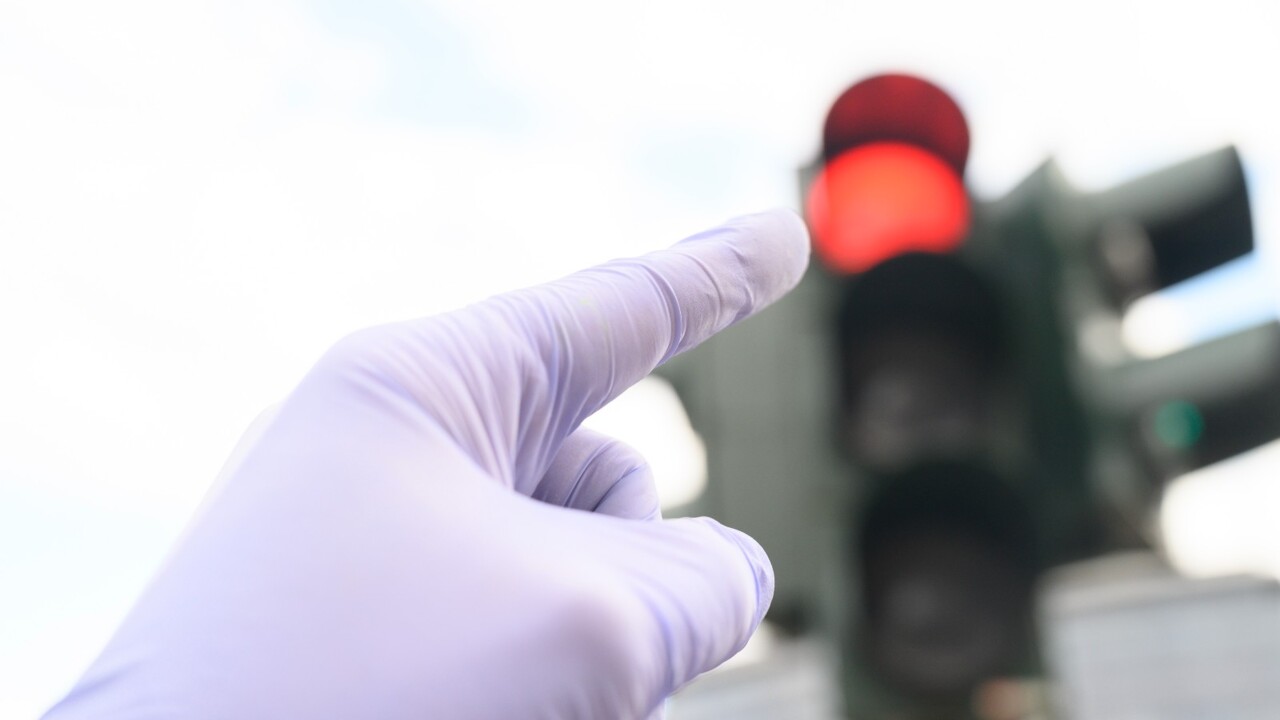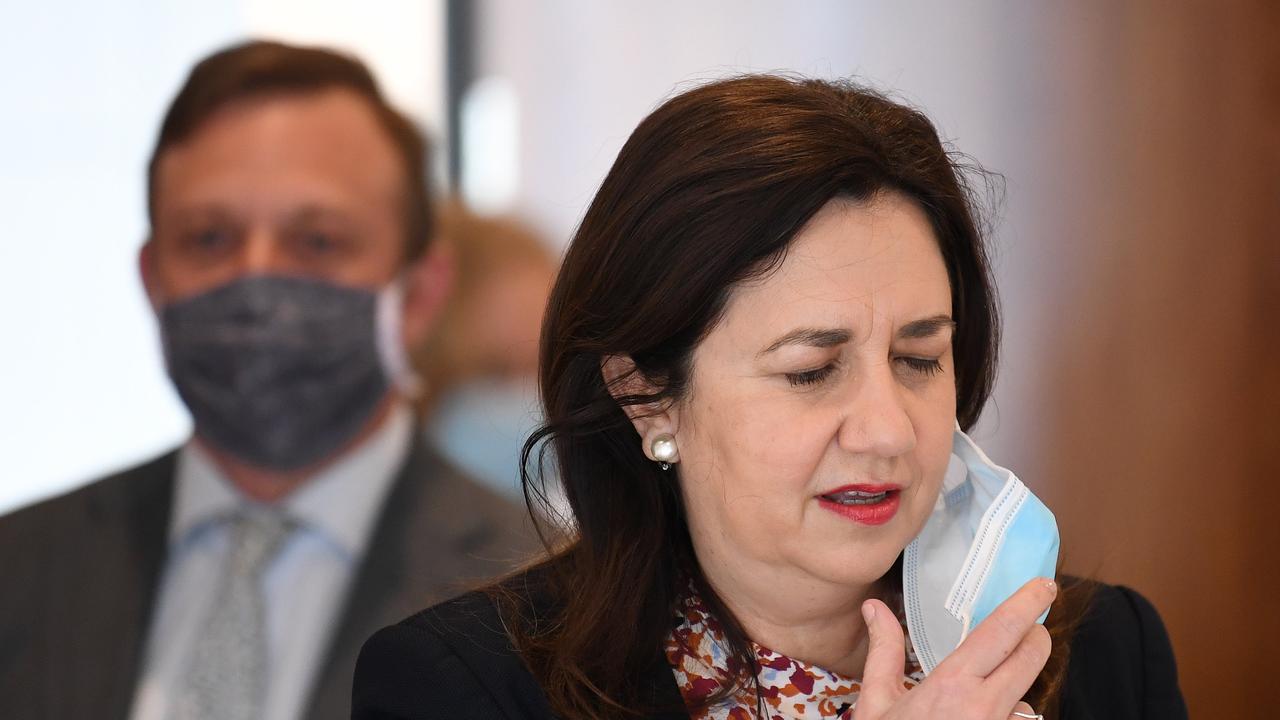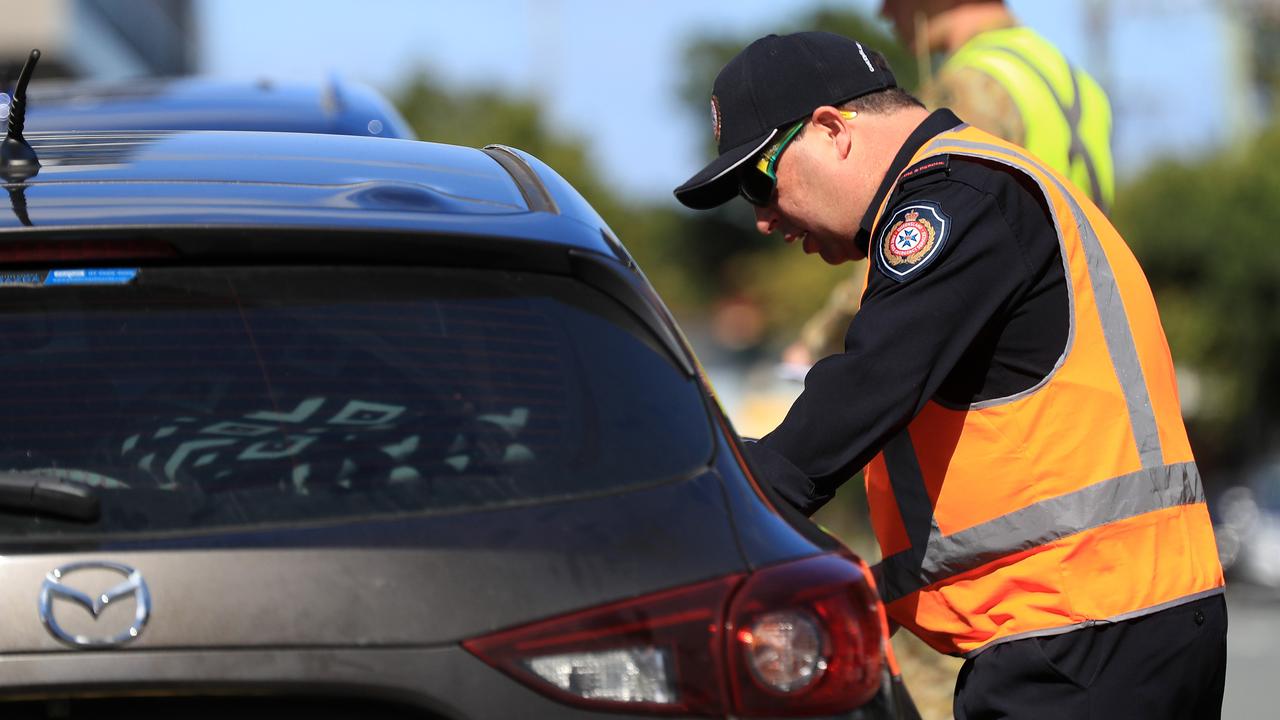Queensland Covid: Infectious disease experts warn of rampant reinfection
Experts are warning of rampant rates of Covid infection in Queensland as the state is gripped by a worsening fourth wave. COVID CASES MAPPED

QLD Coronavirus News
Don't miss out on the headlines from QLD Coronavirus News. Followed categories will be added to My News.
Infectious diseases experts working on the ground with Covid-19 patients have slammed recent statements from the state health authority as a “dramatic under representation” of the reinfection and long Covid rates in Queensland.
Health experts are concerned that Queensland Health’s submission to the federal government’s inquiry into long Covid and reinfection has diminished the significance of the pandemic, after the health authority said reinfections made up just 1.9 per cent of all Covid-19 cases.
Professor Nigel McMillan, program director of infectious diseases and immunology at Griffith University, said it wasn’t a reliable percentage given the vast underestimation of infection in the community due to lack of reporting and testing.
“You can’t actually make that conclusion about reinfection at all. We’re blind, we don’t have all that data,” he said.
“My feeling is they (Queensland Health) are really underplaying it and they’re underplaying it in the absence of actual data.”
Leading infectious diseases expert in the state, Dr Paul Griffin, said the only data available was national and international surveys which suggested around 65 to 80 per cent of adults had recently been infected with Covid-19.
“Case numbers are relatively meaningless at the moment, there’s so few people getting tested.
“And those that are using Rapid Antigen Tests there’s only a small proportion that are reporting them.”
“We need to look at the hospitalisation figures, and they’re still very significant,” Dr Griffin said.
Last week, Queensland recorded 10,082 Covid cases in the seven day period, with 312 in hospital and 8 in intensive care.
Dr Griffin said it seemed like Queensland was at or just past the current Covid wave but there was little certainly with existing data, and estimating the rates of reinfection was impossible.
“I think we have to have a realistic expectation that any figures of infection we have are a dramatic under representation and we shouldn’t overcall the significance of them as a result,” he said.
“Certainly I’m seeing people that have been infected multiple times.”
“That’s one of the challenges with the new sub-variants is that they are immune evasive, meaning they can evade our protection to a degree from vaccines and past infection.”
The report submitted to the federal inquiry also stated that Queensland had not experienced a “sizeable burden” of long Covid cases in the health system.
The report downplayed the need for dedicated long Covid clinics, arguing GPs and primary care should remain the main form of treatment.

Dr Griffin said this was “tremendously frustrating” for both overworked GPs and those likely suffering from long Covid who have had their symptoms dismissed.
“In my practice, and talking to my colleagues, there are so many people with prolonged symptoms that are consistent with long Covid,” he said.
“It’s frustrating. It must be tremendously frustrating for those that are most affected … A lot of them just want to feel heard and that their issues are legitimate and that the most will be done to help them recover.”
Dr Griffin said in an already strained health care system, GPs would struggle to allocate the time needed to properly address long Covid symptoms.
Professor McMillan agreed that long Covid clinics would be the ideal way to deal with the new illness.
“It’s only through best practice that we’ll learn how to treat long Covid well. If you have a clinic where you see lots of these patients, (the doctors) really develop the practice rather than individual GPs dealing with individual patients over a wide network who are probably struggling for direction in terms of treatment,” he said.
“There’s great advantage to having a long Covid clinic in terms of improving clinical responses and practice.”
A Queensland Health spokesperson said the department “continues to monitor the rate of reinfection in Queensland, as well as the need for long Covid services across its system”.
They confirmed their reinfection rates are based solely on positive PCR or Rapid Antigen Tests that have been reported.
“Any person who continues to experience Covid-19 symptoms in the months following their infection is encouraged to speak with their GP about treatment options,” the spokesperson said.



